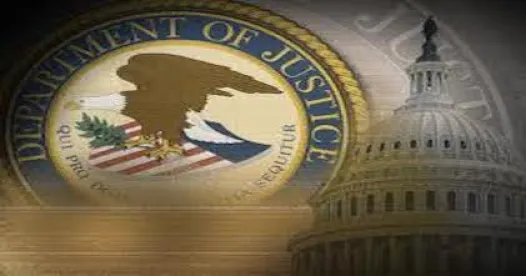Recent statements by top US Department of Justice officials indicate that DOJ may consult the FCPA Corporate Enforcement Policy for guidance outside of the Foreign Corrupt Practices Act context in assessing whether a company’s self-reporting and remediation measures may justify declination.
During a presentation at the American Bar Association’s (ABA’s) White Collar Conference on March 1, John Cronan, acting assistant attorney general of the US Department of Justice’s (DOJ’s) Criminal Division, and Benjamin Singer, chief of the DOJ Fraud Section’s Securities and Financial Fraud Unit, conveyed DOJ’s intention to “reward[] self-disclosure, full cooperation, [and] timely and appropriate remediation” by declining to bring cases against companies investigated for criminal violations other thanthe Foreign Corrupt Practices Act (FCPA).
This announcement reflects an expanded application of DOJ’s FCPA Corporate Enforcement Policy (the Policy) beyond violations of the FCPA.[1] But unlike the aspects of the Policy formalized in November 2017, Messrs. Cronan and Singer noted, DOJ Criminal Division attorneys are referring to the expanded application of the Policy as “nonbinding guidance” in deciding whether to prosecute cases outside the FCPA context. Thus, the Policy’s expansion will be subject to the uncertainty of prosecutorial discretion.
FCPA Corporate Enforcement Policy
In November 2017, DOJ formalized the Policy in the US Attorney’s Manual (USAM). The Policy articulated a presumption that a company investigated for FCPA violations will not be prosecuted, absent aggravating circumstances, if the company (1) voluntarily self-discloses misconduct, (2) fully cooperates, and (3) timely and appropriately remediates.[2]
Even given this formalized Policy, DOJ retains substantial discretion in assessing whether a self-disclosure was timely for the government’s purposes, whether the “scope, quantity, quality, and timing of cooperation” was adequate, and whether the company has, in DOJ’s view, “effectively remediated at the time of the resolution.” Companies also are expected to pay all disgorgement, forfeiture, and restitution resulting from the misconduct at issue in order to benefit from the Policy.
The Policy also describes examples of “aggravating circumstances” that may preclude a presumption of declination, including if the company is a repeat offender, “involvement by executive management of the company in the misconduct,” “a significant profit to the company from the misconduct,” and “pervasiveness of the misconduct within the company.” Of course, similar to the assessment described above, these terms are subject to the prosecutor’s assessment of the particular case. Even if aggravating circumstances are present, however, the Policy explains that companies that otherwise self-report will be eligible for a 50% reduction off of the low end of the fine range, and may not be required to have a monitor.
Application of the Policy Outside of the FCPA
In their presentations, Messrs. Cronan and Singer highlighted DOJ’s recent declination to prosecute a global bank, as an example of applying the Policy outside the FCPA context. As described in DOJ’s letter of declination, DOJ elected not to prosecute the bank based on its (1) timely and voluntary disclosure of the offending transaction, (2) thorough and comprehensive investigation, (3) full cooperation, (4) efforts to improve its compliance program, (5) full remediation, and (6) agreement to continue to cooperate with DOJ.
Messrs. Cronan and Singer also described the bank’s response to DOJ’s investigation as a roadmap for companies seeking to avoid criminal charges in the future, and compared the bank’s efforts to those of another global bank that recently agreed to pay $101.5 million in penalties and disgorgement in a similar case. In contrast to the response of the bank that received a letter of declination, the other bank allegedly failed to voluntarily disclose the misconduct to DOJ, and did not fully cooperate with the investigation at its outset. These initial failings outweighed the penalized bank’s later remedial measures, which appears consistent with Acting AAG Cronan’s comment that a company should “quickly raise its hand” upon discovering corporate misconduct.
Without being formalized in the USAM, this new application of the Policy outside the FCPA context lacks the formality Deputy Attorney General Rod Rosenstein now appears to require (he recently noted that DOJ needs to “clearly distinguish binding policies from commentary”). DAG Rosenstein has cautioned that informal DOJ guidance, including guidance articulated in speeches, may not be relied upon because “unless the statements are incorporated into the [USAM] or issued through a formal Department memorandum, they are not necessarily policies that govern Department employees.”
Indeed, during a March 2 speech at the ABA’s White Collar Conference, DAG Rosenstein reaffirmed these principles in stating that without a consolidation of DOJ policies in the USAM, it is difficult for businesses to make decisions due to the resulting uncertainty. To this end, DAG Rosenstein noted that companies, like individuals, should be held accountable, but not at the expense of innocent shareholders and employees. Notably, DAG Rosenstein emphasized during his March 2 speech the importance of corporate compliance efforts—including self-disclosure and risk mitigation—and that companies should be rewarded when they have strong, effective compliance programs that are incorporated into corporate culture.
Conclusion
Although Messrs. Cronan and Singer were careful to limit their comments to their experience in DOJ’s Criminal Division, it appears that DOJ may consult the Policy for guidance outside of the FCPA context in assessing whether a company’s self-reporting and remediation measures may justify declination.
At this juncture, however, the Policy’s application outside of the FCPA context has not been formalized in the USAM, and its application is subject to considerable uncertainty and prosecutorial discretion. Acting AAG Cronan described this expansion of the Policy as a win-win for companies and DOJ alike—permitting companies to move on from DOJ investigations and for DOJ to conclude investigations more quickly—but without a more formalized structure and application, the Policy’s expansion and application will be based on DOJ’s assessment of the facts and circumstances of each individual case.
[1] See US Attorney’s Manual § 9-47.120
[2] Read a full summary of the FCPA Corporate Enforcement Policy





 />i
/>i

